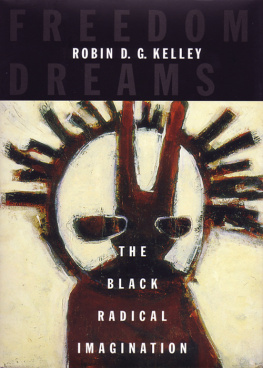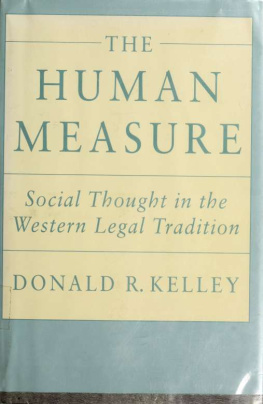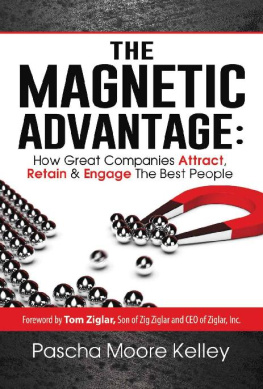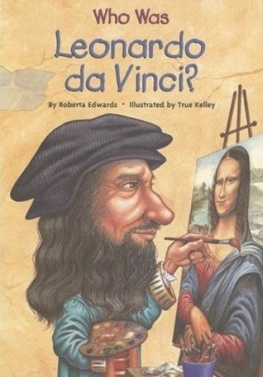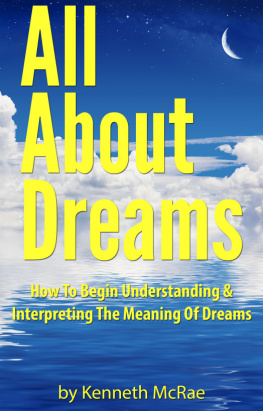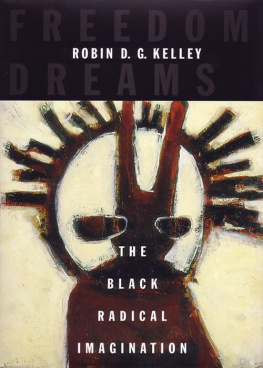ACKNOWLEDGMENTS
If I thanked everyone who deserved to be thanked, the additional pages would double the size (and the price) of this book. I only hope that those I have not mentioned will understand and accept my gratitude in some other form.
First and foremost, I must thank the good people at Dartmouth College for inviting me to deliver the Martin Luther King Jr. Lecture in January 2000, notably Professors Judith Byfield and Deborah King; Ozzie Harris, director of Dartmouths Office of Equal Opportunity and Affirmative Action; and a brilliant recent graduate named Shauna Brown. The theme that year was Legacies of Activism/Legacies of Hate, and I decided to concentrate on the former. My lecture, which I titled Politics and Knowledge: On the Poetry of Social Movements, planted the seeds for this book. The organizing committee for the event and the audience it attracted pushed me to think well beyond the limits of an hour-long speech. The other invited speakers raised the stakes; poet Joy Harjo, veteran radical Bill Epton (who recently joined the ancestors), and New Hampshire state representative Jackie Weather-spoon all brought powerful, compelling ideas that profoundly shaped my own thinking. Im especially grateful to Ozzie Harris and his staff, particularly Connie Bellavance, for facilitating my visit and making my family and me feel welcome.
Thanks to the generosity of Harle Montgomery and the Montgomery Endowment, I returned to Dartmouth that summer and spent two fantastic months teaching an incredible group of sophomores and living in the luxurious Montgomery House on the edge of campus. It was there that Freedom Dreams began to take shape as a book. By the time I left Dartmouth half of the manuscript was complete. My family and I are so grateful to Barbara Gerstner, director of the endowment, and her assistant, Lou Anne Cain, for making our stay so wonderful and productive. Several faculty members, staff, and administrators went well beyond the call of duty to facilitate our visit: Besides those already mentioned, I express my heartfelt thanks to Alex Bontemps, Donna and Bruce Nelson, Mary Kelley, Annelise Orleck, Leo Spitzer and Marianne Hirsch, and Dean Jamshed J. Bharucha, for their warmth, hospitality, and stimulating conversation.
Cedric Robinson, my mentor and author of the magnificent book Black Marxism: The Making of the Black Radical Tradition, was the other source of inspiration for this book. Eighteen years ago he propelled me on an intellectual and political journey that would lead to an examination of the thoughts and dreams of black radicals. The movement itself proved to be a third source, particularly its recent resurgence in the form of the Black Radical Congress and various allied organizations. I am indebted to the entire movement for its collective knowledge and wisdom, though I must personally thank the following activist/intellectuals whose ideas have directly influenced this book: Amiri Baraka, Amina Baraka, Barbara Ransby, Lisa Brock, Tracye Matthews, Manning Marable, Leith Mullings, Abdul Alkalimat, Bill Fletcher, Fran Beale, Jean Carey Bond and Max Bond, Sam Anderson, Joel Washington, Cathy Cohen, Sundiata Cha-Jua, Clarence Lang, Reverend Osagyefo Uhuru Sekou, Fanon Che Wilkins and Assata Zerai, Horace Campbell, Gerald Horne, Komozi Woodard, Clarence Lusane, Eric Mann, Liann Hurst Mann and the staff of the Labor/Community Strategy Center, Ernest Allen, Harold Cruse, Vicki Garvin, Michael Goldfield, Sid and Salima Lemelle, Josh Lyons, David Roediger, Tim Schermerhorn, Akinyele Umoja, Alan Wald, Billy Watkins, and Bob Wing.
George Lipsitzs imprint is all over Freedom Dreams, for he is a master at uncovering the desires and hopes of an aggrieved people. Tricia Rose always asks the hard questions, and in doing so makes us all better scholars. Farah Jasmine Griffin, Tera Hunter, and Saidiya Hartman, in their scholarship and by example, reminded me of the power of human dignity and self-possession. Ted Joans and Laura Corsiglia reminded me of the force of love. Franklin and Penelope Rosemont reminded me of the Marvelous. And Jayne Cortez and Mel Edwards reminded me that the Marvelous lies in our capacity to struggle. Indeed, without artists around me, there would be no Freedom Dreams. Im especially indebted to Tracie Morris, Keorapetse Kgositsile, Sonia Sanchez, Sekou Sundiata, Geoffrey Jacques, Arno Boehler, Susanne Granzer, and my sister Meilan Carter for reminding me of the power unleashed by the imagination. Stanley Crouch, an extraordinary teacher, made me look harder at the mess were in, yet like Robert OMeally and Jacqui Malone, reminded me that we can (must!) swing our way out of our constrictions. The great pianist, composer, and scholar Randy Weston showed me the freedom in African culture; the love and encouragement he and his daughter Pam have given me over the last few years have left a deep mark on this book and on works to come. Henry Giroux not only infused my work with a sense of hope but invited me to Penn State to present the essential ideas from this book. He and Susan Giroux took me into their home, fed me, engaged me, and ultimately made this a better book. Harvey Kaye and his family did much the same thing in Green Bay, Wisconsin. Harvey and his students engaged my ideas with astounding energy and enthusiasm. Likewise, Marcus Rediker was kind enough to invite me to give the E. P. Thompson Lecture at the University of Pittsburgh, where I shared the basic thesis of Freedom Dreams. My conversations and arguments afterward sharpened my analysis. Im also especially grateful to the late Michael Jimenez, Forrest Hylton, George Reid Andrews, Wendy Goldman, and other members of the Working-Class History Seminar. Peter Linebaugh, co-author with Marcus Rediker of The Many-Headed Hydra, remains a consistent source of brilliance and inspiration. That book, in many ways, was a model for Freedom Dreams.
Deb Chasman, my editor at Beacon Press, kept telling me how much she loved this project from its inception. Her encouragement, along with that of Tisha Hooks (my alter editor) rescued this manuscript from the trash heap more than once. And Joy Sobeck made my prose immeasurably more readable. Delverlon Hall provided administrative assistance, friendship, advice, and unconditional love. She is a beautiful spirit with an equally beautiful son, Devin, who will one day save us all. My graduate students contributed to this project in myriad ways, though none more than Betsy Esch. She worked as my research assistant and co-authored an article with me on Maoism and black liberation, sections of which appear in . My friend Judith Macfarlane provided brilliant translations of key French documents gratis; her unyielding support over the years has been implacable.
Several friends and colleagues read parts of the manuscript or just provided insights that proved crucial to this book. Given space limitations, all I can do is list their names: Angela Davis, Gina Dent, Vincent Harding, Eddie Glaude, Genna Rae McNeil, Wini Breines, Paul Buhle, MariJo Buhle, Rod and Melanie Bush, Hazel Carby, Michael Denning, Janaki Bakhle, Nick Dirks, Geoff Eley, Regina Morantz, Nell Irvin Painter, George Sanchez, Kevin Gaines, Penny von Eschen, Kyra Gaunt, Gerald Gill, Guy Ramsey, Herman Gray, Michael Honey, Wahneema Lubiano, Tiffany R. L. Patterson, Cornel West, Shane White, Cynthia Young, Anthony Foy, Peniel Joseph, Beth Coleman, Howard Goldkrand, William Loren Katz, Andrew Ross, Nikhil Singh, Veronique Helenon, Kim Butler, Sherrie Russell-Brown, Renee Green, James Spady, Marilyn Young, the staff at the Tamiment Library at New York University, especially Andrew Lee, Jane Latour, and the late Debra Bernhardt.
And then there are those folks who defy category; close friends who may or may not have read early drafts or talked with me about this book, but whose love and support has fueled a radical vision of community and sustained my family and me during the last few years. They include Michael Eric Dyson and Marcia Dyson, Denise Greene, Emir Lewis, Ayodele Greene-Lewis, Elenni Knight Davis, Michaela Angela Davis, Graham Haynes, Ezra Knight, Lem Martinez-Carroll and Judith Killen, Elsa Barkley Brown, Earl Lewis, Susan Whitlock, Jayne London, Julius Scott, Arthur Jafa, Greg Tate, Jill Nelson, Stanley Nelson, Rene Moreno, Emily Colas, Meg Williams, Kamili Anderson, Dalila Anderson, and Glenda Johnson. Maxine Gordon, who holds the unusual position of being friend, family, student, teacher, and spiritual advisor, deserves a special thanks for keeping my work and life directed. And once again, I must thank my teachers who got me here: Thelma Reyna, Jack Stuart, Leo Rifkin (rest in peace), and Jane Andrias, her husband, Richard, and their two amazing daughters, Eve and Kate.

